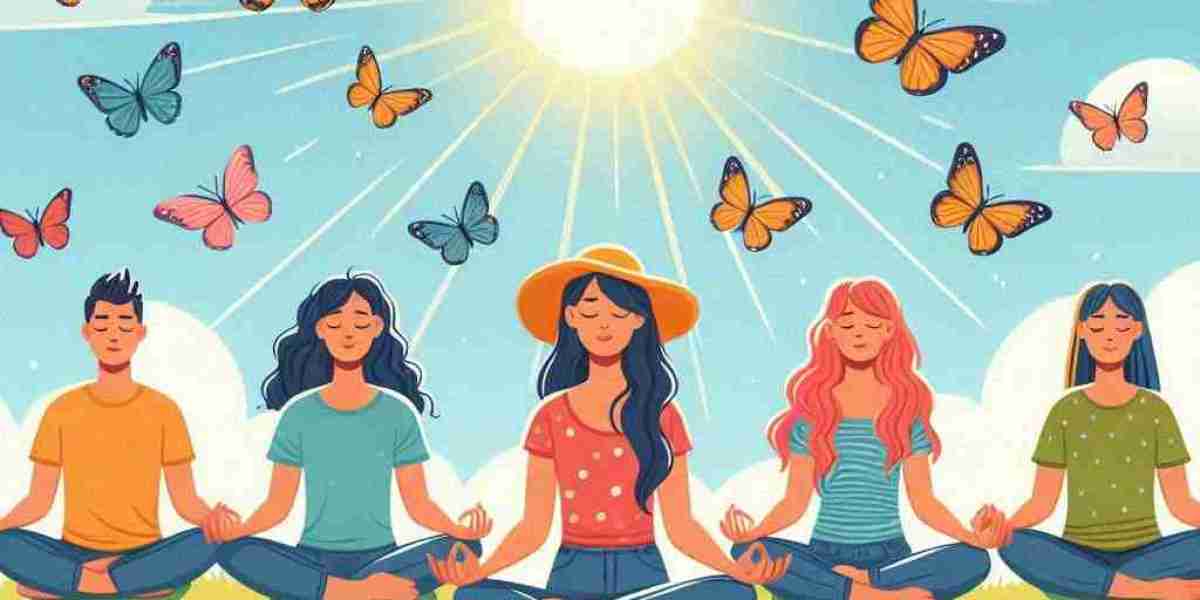In today's fast-paced world, finding time to relax is more important than ever. Whether it's work stress, social obligations, or just the daily grind, it's easy to feel overwhelmed. However, relaxation isn't just about unwinding after a long day—it’s essential for our mental, emotional, and physical well-being. Here are some of the best ways to relax, recharge, and feel more balanced in your day-to-day life.
1. Mindful Meditation
Meditation is one of the most effective ways to reduce stress and promote relaxation. You don’t need to dedicate hours to it—even five to ten minutes of focused breathing can help. By clearing your mind and focusing on your breath, you can bring yourself back to the present moment, letting go of anxieties about the future or regrets about the past.
How to Get Started:
- Find a quiet place where you won’t be disturbed.
- Sit comfortably, close your eyes, and focus on your breathing.
- If your mind wanders, gently bring it back to your breath without judgment.
Over time, meditation can help reduce stress, increase self-awareness, and improve overall well-being.
2. Physical Activity
Exercise isn’t just great for your body—it’s a fantastic way to relax your mind as well. When you exercise, your body releases endorphins, chemicals that act as natural mood lifters. Activities like yoga, running, walking, or even dancing can give you a mental break and help alleviate stress.
The Key to Relaxing through Exercise:
- Choose an activity you enjoy so that it feels less like a chore.
- Try yoga or stretching for a more meditative, low-impact workout.
- Even a short walk in nature can dramatically improve your mood and stress levels.
3. Deep Breathing
It sounds simple, but deep breathing exercises can quickly calm the mind and relax the body. Stress tends to cause shallow breathing, which can make us feel anxious. Practicing deep, intentional breathing helps activate the parasympathetic nervous system, which signals the body to relax.
Try This Technique:
- Inhale deeply through your nose for a count of four.
- Hold your breath for a count of four.
- Exhale slowly through your mouth for a count of six.
- Repeat this for a few minutes, focusing on the breath and letting go of any tension.
This technique, often called the 4-4-6 breath, is easy to do anytime, anywhere—whether you're at your desk, in your car, or lying in bed.
4. Disconnect from Technology
We are constantly bombarded with notifications, emails, and social media updates, which can make it hard to truly relax. Taking a break from screens allows you to disconnect from the noise and demands of the digital world.
How to Unplug:
- Set aside a specific time each day to be device-free.
- Avoid looking at screens (especially your phone) before bedtime, as blue light can interfere with sleep.
- Use this time to engage in other activities, like reading a book, going for a walk, or practicing a hobby.
Taking regular breaks from technology can do wonders for your mental health and help you feel more relaxed and present.
5. Practice Gratitude
Gratitude might not seem like a relaxation technique at first, but focusing on the positive aspects of your life can shift your perspective and reduce stress. When you're feeling overwhelmed, take a moment to reflect on what you're grateful for, whether it's big or small.
Daily Gratitude Practice:
- Keep a journal and write down three things you're grateful for each day.
- Think about people who have made a positive impact on your life and consider reaching out to them.
- By focusing on what you have rather than what you lack, you'll create a sense of contentment and ease.
6. Create a Relaxing Environment
Your environment plays a huge role in how relaxed you feel. A cluttered, chaotic space can make it hard to unwind, while a calm, organized environment promotes peace. Small changes to your surroundings can make a big difference.
Tips for a Relaxing Space:
- Declutter your home or workspace to reduce distractions.
- Add soothing elements like candles, soft lighting, or calming scents (lavender, chamomile, or sandalwood).
- Play soft music or sounds of nature to create a peaceful atmosphere.
Even setting up a small corner in your home dedicated to relaxation can provide you with a go-to space for unwinding.
7. Engage in a Creative Hobby
Creative outlets such as painting, writing, knitting, or gardening can be incredibly therapeutic. When you're absorbed in a creative activity, your mind is focused on the task at hand, which can lead to a state of flow—an optimal state where you lose track of time and feel fully immersed in what you're doing.
Why It Helps:
- Creativity reduces stress by giving you a break from your usual worries and responsibilities.
- It provides a sense of accomplishment and boosts your mood.
- You don’t need to be “good” at a hobby for it to be effective—just enjoy the process!
8. Spend Time in Nature
Nature has a calming effect on both mind and body. Whether it’s a walk in the park, hiking in the mountains, or sitting by the beach, spending time outdoors can improve mood, reduce anxiety, and promote relaxation.
Why Nature Works:
- Fresh air and natural surroundings can lower stress hormone levels.
- The soothing sights and sounds of nature, like rustling leaves or waves, have a meditative quality.
- Even a short time in nature can leave you feeling refreshed and grounded.
9. Aromatherapy
Aromatherapy involves using essential oils to promote relaxation and well-being. Scents like lavender, eucalyptus, and chamomile are known for their calming properties and can be used in a variety of ways, such as in a diffuser, bath, or massage oil.
How to Use Essential Oils:
- Add a few drops to a diffuser to fill your space with a calming scent.
- Mix essential oils with a carrier oil for a relaxing self-massage.
- Add a few drops to your bath to enhance your relaxation routine.
Incorporating scents into your relaxation practice can enhance the experience and help you unwind more deeply.
10. Get Adequate Sleep
Finally, one of the best ways to relax and rejuvenate is by ensuring you get enough quality sleep. Without sufficient rest, it’s harder to manage stress, think clearly, or feel energized throughout the day.
Improve Your Sleep Routine:
- Establish a regular sleep schedule by going to bed and waking up at the same time each day.
- Create a calming bedtime routine (reading, dimming the lights, avoiding screens).
- Make your bedroom a restful environment—cool, quiet, and dark.
A good night's sleep not only helps you relax but also improves your mood, productivity, and overall health.
Conclusion
Relaxation is vital for our overall well-being, and it doesn’t have to be complicated. Whether it’s through mindfulness, physical activity, disconnecting from technology, or spending time in nature, incorporating relaxation practices into your daily life can help you feel more balanced, refreshed, and ready to take on whatever comes your way. Prioritize your relaxation, and you’ll notice a positive shift in both your mind and body.









